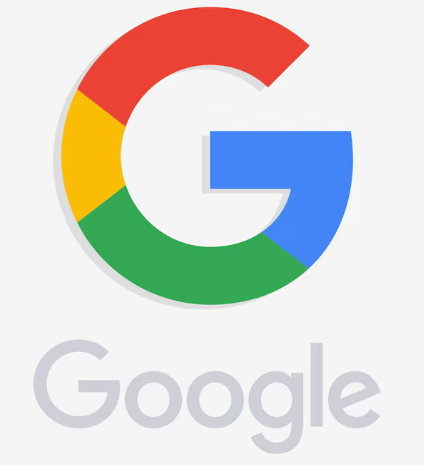How to Optimize for Google’s E-E-A-T in 2025
Optimizing for E-E-A-T in 2025 is less about checking SEO boxes and more about showing up with real value, proven experience, and earned trust.
What Is E-E-A-T and Why Does It Matter?
E-E-A-T stands for Experience, Expertise, Authoritativeness, and Trustworthiness. Introduced by Google to evaluate the quality of content, E-E-A-T has become one of the most critical concepts in SEO, especially for YMYL (Your Money or Your Life) content. As algorithms evolve, Google increasingly prioritizes content that is:
- Backed by hands-on experience
- Created by subject-matter experts
- Cited or acknowledged as authoritative
- Trustworthy and well-sourced
And it’s not just for health and finance anymore. As generative AI floods the web with content, E-E-A-T is Google’s answer to separating the wheat from the chaff. Learn more from Google’s Search Central Blog.
How Google Measures E-E-A-T in 2025
While E-E-A-T itself isn’t a direct ranking factor, it influences several signals that are. Here’s how Google assesses each element:
- Experience: Does the author have first-hand, real-world knowledge of the topic? Did they try the product, implement the advice, or visit the place they’re talking about?
- Expertise: Is the content written by someone with verifiable credentials or a clear track record?
- Authoritativeness: Do other credible sites reference or quote your brand or content?
- Trustworthiness: Is your site secure, transparent, and backed by real sources?
Search Engine Journal explains E-E-A-T in greater detail.

Step-by-Step Guide to Optimizing for E-E-A-T
1. Show First-Hand Experience
2025 SEO demands more than just regurgitating information. Content needs to feel lived in.
How to do it:
- Share insights from your own use or testing of tools, products, or processes.
- Include photos, videos, and real data from your experiments or usage.
- Use language that demonstrates familiarity (e.g., “When we ran into this issue, we tried…”).
2. Feature Verified Experts
Expertise can’t be faked. In 2025, Google expects you to back claims with real people who know their stuff.
How to do it:
- Include quotes from professionals with credentials (doctors, CAs, researchers, etc.).
- Use structured bios highlighting your authors’ qualifications.
- Link to expert profiles or external sites to prove credibility. LinkedIn or Expertise.com can be helpful directories.
3. Build Topical Authority
Being an expert on one post is good. Being an expert across many posts? Even better.
How to do it:
- Create content clusters around a niche or subject.
- Interlink your articles using descriptive anchor text.
- Update older posts to reflect new information and link back to newer ones. SEMrush offers great tools for this.
4. Increase External Mentions
Your site’s authoritativeness increases when others reference or link to you.
How to do it:
- Conduct original research and publish whitepapers or data studies.
- Reach out to journalists, bloggers, and niche media.
- Use HARO (Help A Reporter Out) and Qwoted to get your experts quoted in other publications.
5. Strengthen On-Site Trust Signals
Trustworthiness is about how secure, transparent, and user-safe your site is.
How to do it:
- Use HTTPS. Ensure your SSL certificate is valid and auto-renews.
- Publish author bios and editorial guidelines.
- Be transparent about affiliations and sponsored content.
- Include updated contact information and a visible privacy policy.
Avoid These Common E-E-A-T Mistakes
1. Anonymous or Generic Authors
If your content lacks bylines or comes from vague sources, you’re losing E-E-A-T points fast.
2. Thin or AI-Generated Content Without Review
Even high-volume AI content needs a human touch. Edit, review, and inject experience.
3. Overlooking Outdated Information
Old stats, broken links, and obsolete advice all lower your credibility.
4. Keyword Stuffing Without Adding Value
SEO in 2025 isn’t about gaming algorithms. It’s about helping people. Period.
Bonus Tips: EEAT Meets UX in 2025
The line between good content and good user experience is almost invisible now. Google wants both.
- Break up content into scannable sections.
- Use bullet points, images, and short paragraphs.
- Answer “People Also Ask” questions contextually.
- Include an FAQ and expert section at the bottom.
Real-World Example: How Spacebar Walks the Talk
At Spacebar, we don’t just talk about E-E-A-T; we build content systems that live it. Whether it’s bringing in subject matter experts, writing with clear attribution, or designing SEO-driven content clusters, we apply E-E-A-T from the first draft to the final review.
Here’s how we apply each E-E-A-T principle:
- Experience: We test the tools and tactics before we write about them.
- Expertise: Our writers collaborate with industry veterans and certified professionals.
- Authoritativeness: Our work is regularly quoted by top publications and clients.
- Trustworthiness: We maintain high editorial standards, source from the best, and avoid fluff.
FAQs
What is E-E-A-T in SEO?
E-E-A-T stands for Experience, Expertise, Authoritativeness, and Trustworthiness. It’s how Google evaluates the quality and credibility of content, especially in sensitive topics.
Is E-E-A-T a ranking factor?
Not directly, but it influences ranking by shaping signals that Google uses to evaluate content relevance and quality.
How do I improve E-E-A-T on my blog?
Start by using expert sources, writing from experience, citing data, and keeping your content updated and useful.
Does Google penalize low E-E-A-T content?
Yes, indirectly. If your content lacks trust, expertise, or accuracy, it will likely rank lower, especially on competitive queries.







